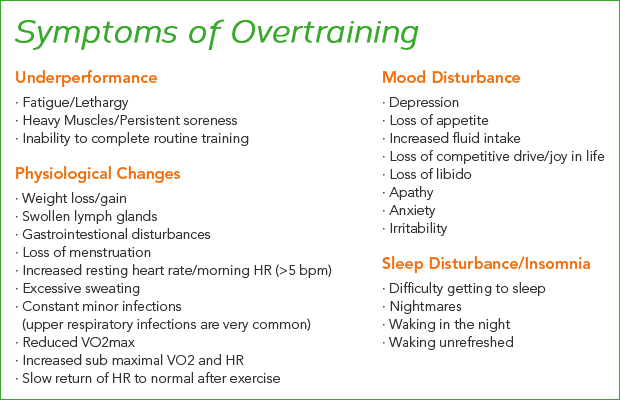As a tech professional, your busy schedule may leave little time for rest and recovery. This can lead to overtraining syndrome, a condition that occurs when the body is pushed beyond its limits without adequate time for recovery. In this article, we will discuss how to identify the signs of overtraining syndrome and provide tips for treating and preventing it.
Signs and Symptoms
One of the first signs of overtraining syndrome is a decline in performance. You may notice that you are struggling to keep up with your usual workload, or that your energy levels are consistently low. Other common symptoms include fatigue, irritability, insomnia, and an increased susceptibility to illness.
Monitoring and Tracking
It is important to monitor and track your training intensity and volume to prevent overtraining syndrome. You can use a fitness tracker or journal to record your workouts, energy levels, and any symptoms you may be experiencing. This will help you identify patterns and make adjustments to your training routine as needed.
Rest and Recovery
Rest and recovery are essential for preventing overtraining syndrome. Make sure to schedule regular rest days into your training program and prioritize sleep and nutrition. If you start to experience symptoms of overtraining, take a break from intense exercise and focus on activities that promote relaxation and recovery, such as yoga or meditation.
Seek Professional Help
If you suspect that you may be suffering from overtraining syndrome, it is important to seek help from a healthcare professional. They can help you develop a treatment plan that may include physical therapy, massage therapy, or other interventions to help you recover and prevent further injury.
Prevention
Preventing overtraining syndrome involves listening to your body and giving it the rest and recovery it needs. Make sure to vary your training routine to prevent burnout and prioritize proper nutrition and hydration. It is also important to set realistic goals and avoid pushing yourself too hard too soon.
Conclusion
Overtraining syndrome can be a serious condition that can impact your performance and overall well-being. By monitoring your training intensity and volume, prioritizing rest and recovery, and seeking help from a healthcare professional when needed, you can prevent and treat this condition. Remember to listen to your body and give it the care it needs to stay healthy and strong.
With these tips in mind, you can continue to excel in your tech career without burning out or risking injury due to overtraining syndrome.

